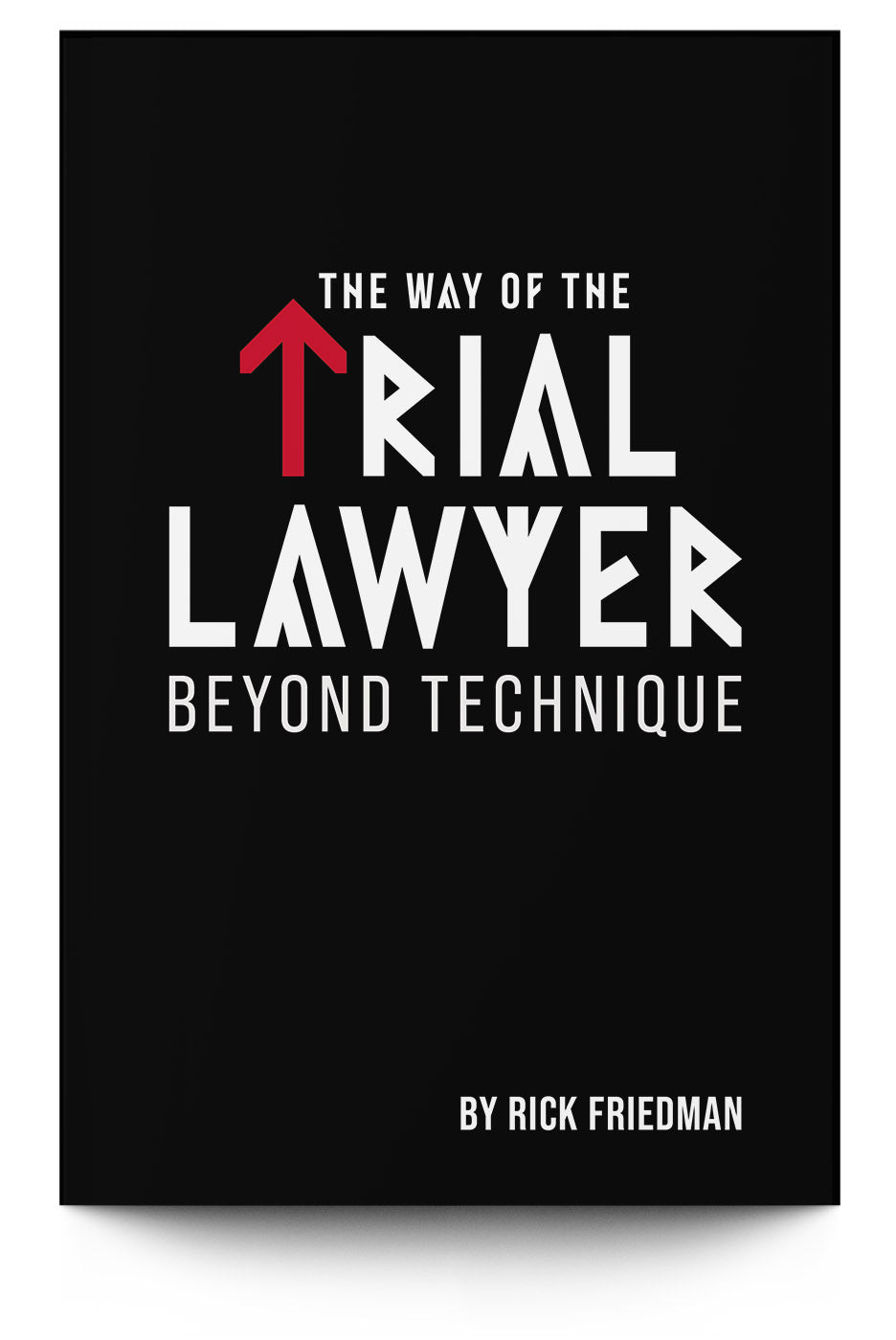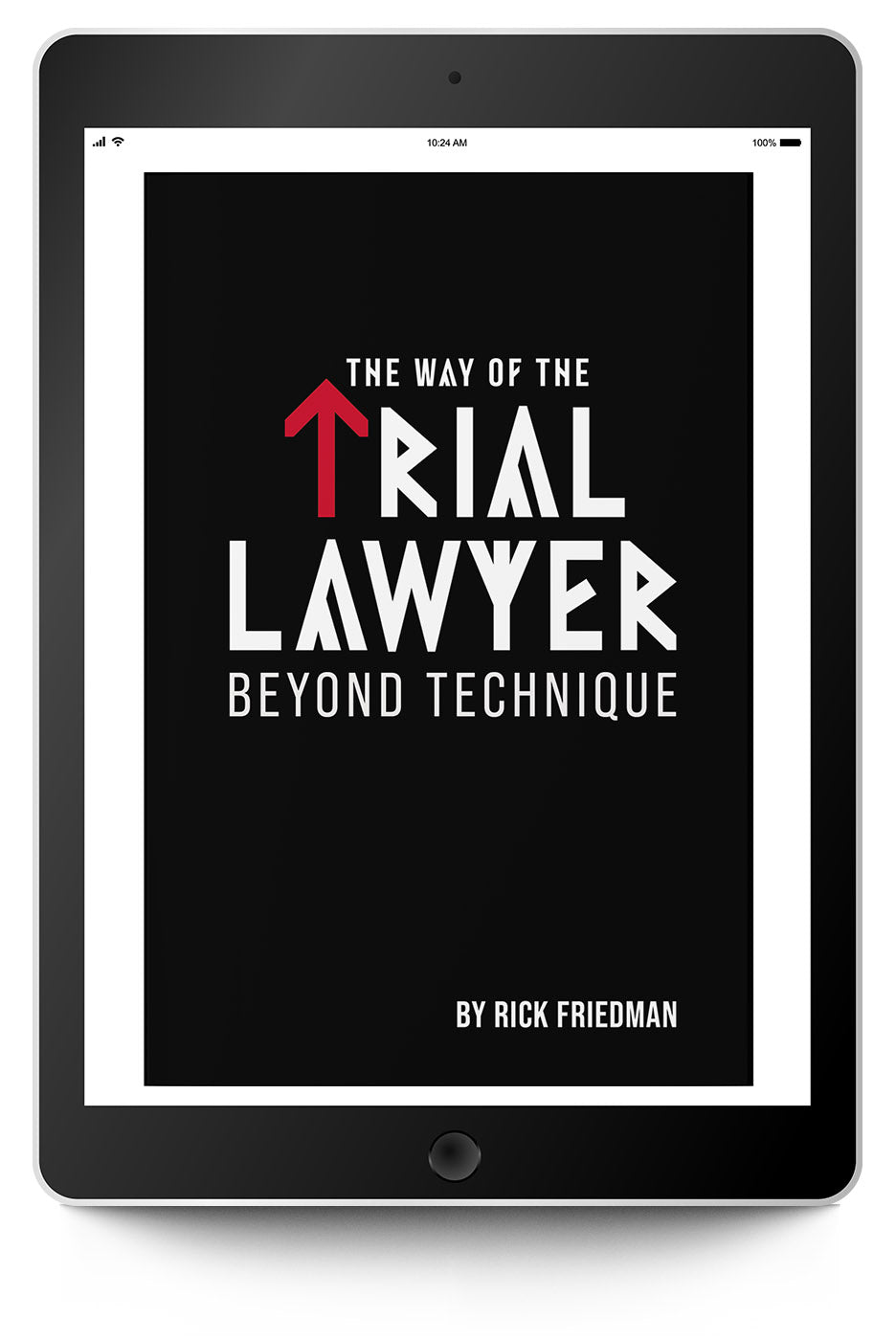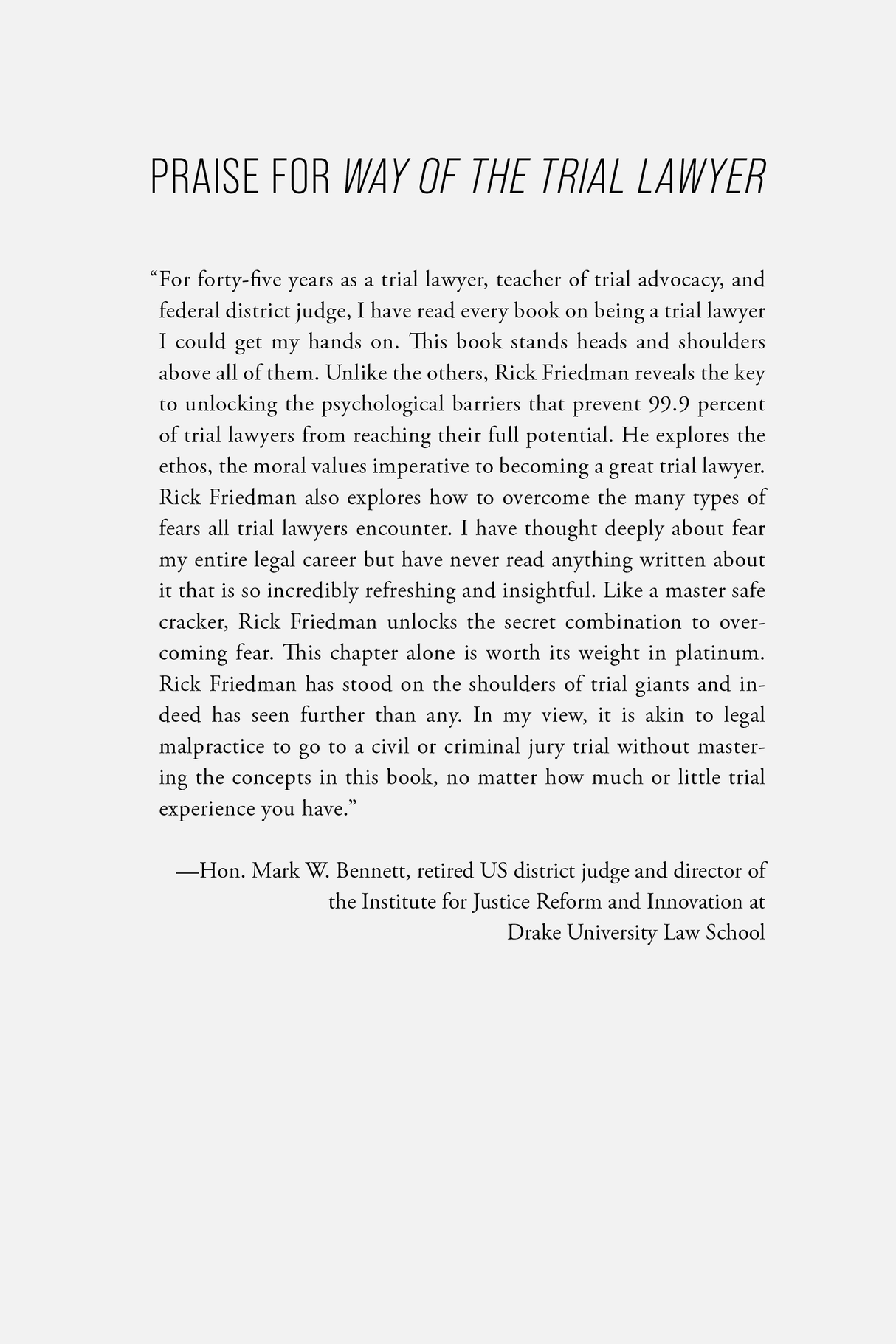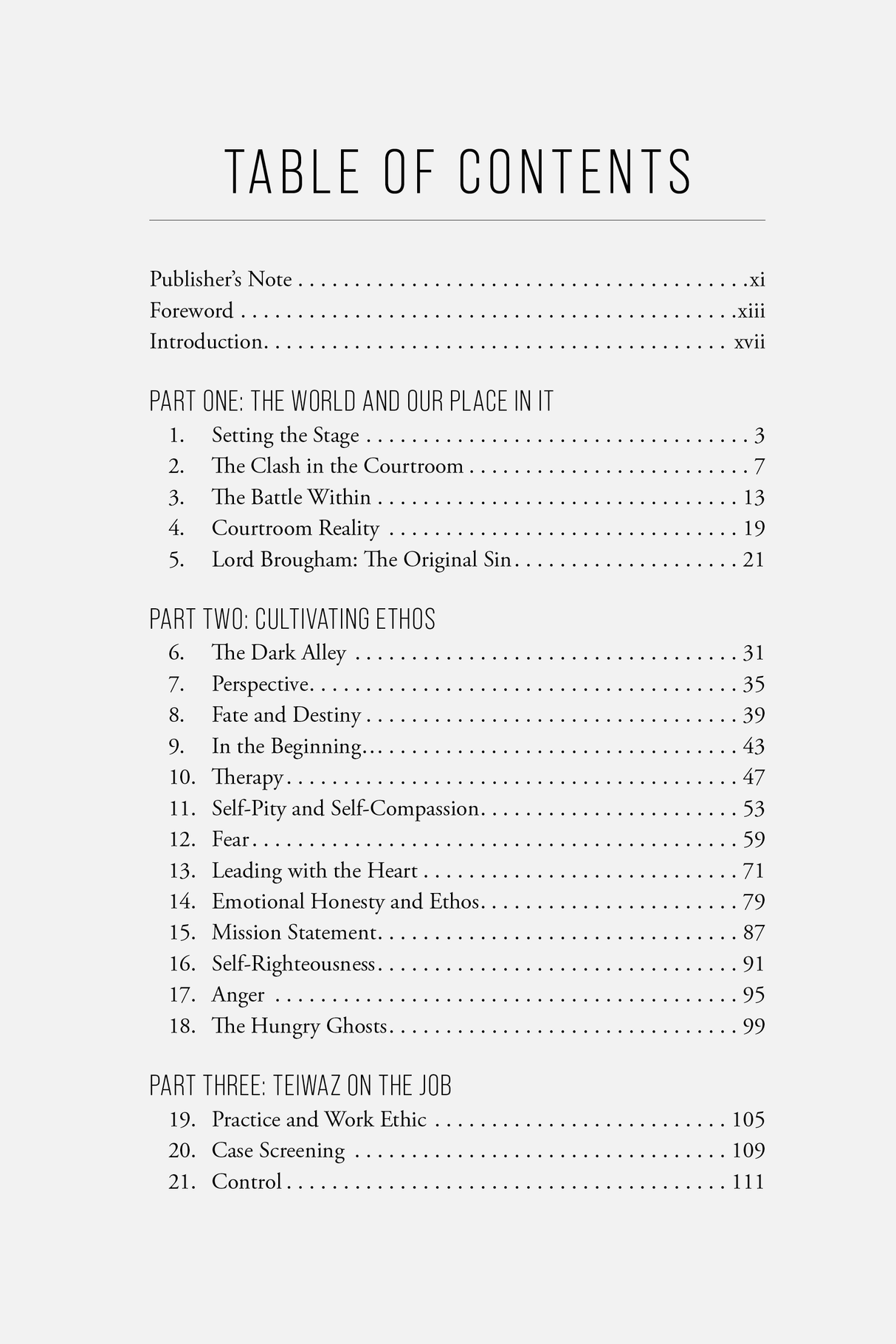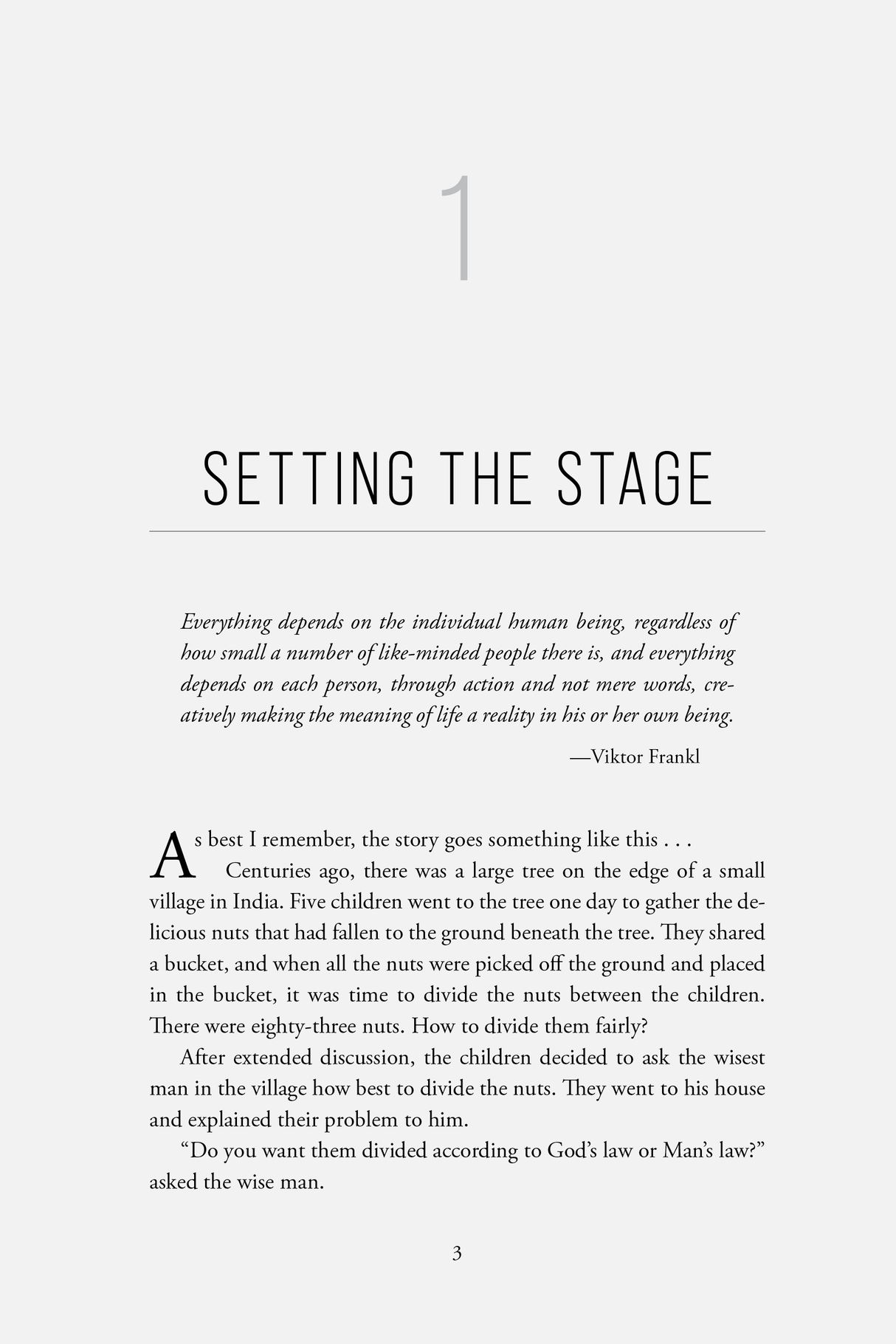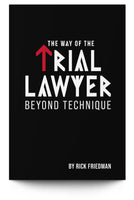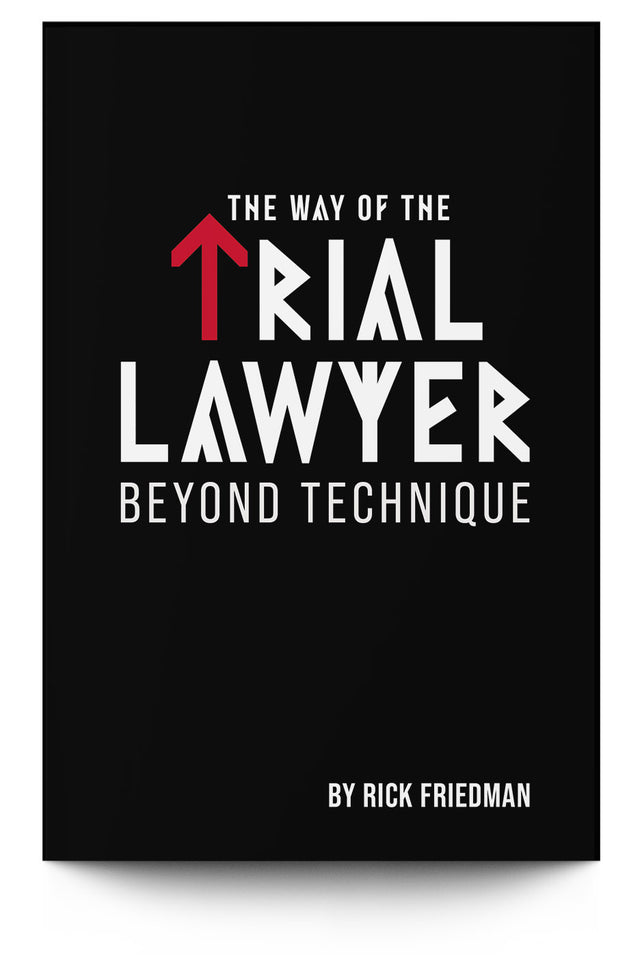The Way of the Trial Lawyer: Beyond Technique
Rick FriedmanThe Way of the Trial Lawyer: Beyond Technique - Paperback / New is backordered and will ship as soon as it is back in stock.
Description
Description
Why do many technically skilled lawyers lose cases? Because in the courtroom, the intellect is often beaten by the heart.
In The Way of the Trial Lawyer, Rick Friedman argues that there is something beyond technique. Something beyond biased jurors and judges or difficult facts. And this something often makes the difference between winning or losing.
Friedman argues that there is “another model available to us. It is that of a lawyer leading with heart; the lawyer as teacher… the lawyer who can stand solid in the courtroom—amid chaos, confusion, and unfairness—pointing toward the moral truth.” Friedman demonstrates how to find that moral truth, the clarity and strength that comes from it—and how it can make the difference between finding justice and losing your case.
Friedman offers concise, practical examples for sorting through the complexities and maps out a path to rooting your advocacy in your case’s moral issues. He guides you on how to explore the moral aspects involved and then apply them—from voir dire to closing—to strengthen your case. Friedman offers lessons on the following and more:
- case selection
- how to analyze your case’s moral issues
- how to earn credibility with the jury and the judge
- how to co-create a moral framework with the jury during voir dire that will apply to your case
- how to address common issues in voir dire
- how to deal with uncomfortable facts or elements in your case
- how to avoid letting opponents distract or manipulate you
- how to frame the defense’s position
- examples for soft-tissue injury cases or cases where there is no objective evidence of injury
- examples for opening statement, and how to bring moral issues clearly into focus
- examples of direct examination, and how to use it to build the plaintiff’s moral case and methodically destroy the defense’s
- examples of cross-examination, and how to use it to directly address the moral aspects of the parties’ respective positions—including how to cross-examine the IME doctor
- how to use closing to easily show the jurors the respective moral positions of the parties, focus on the power of your case, and show the jury why it is right and fair that they give the verdict to your client
In The Way of the Trial Lawyer, Friedman seeks to offer you a new, and more effective, model of advocacy.
Your eBooks are now accessible from your Trial Guides account! Click here for step by step instructions.
Do you want the eBook and print book? After you complete your purchase of the print book you will receive a coupon code via email to purchase the eBook for $20
Author
Author
Details
Details
Paperback: 272 pages; 1st edition (2020); ISBN: 9781951962067
Publisher: Trial Guides, LLC
Table of Contents
Table of Contents
Foreword
Introduction
Part One: The World and Our Place in It
1. Setting the Stage
2. The Clash in the Courtroom
3. The Battle within
4. Courtroom Reality
5. Lord Brougham: The Original Sin
Part Two: Cultivating Ethos
6. The Dark Alley
7. Perspective
8. Fate and Destiny
9. In the Beginning
10. Therapy
11. Self-Pity and Self-Compassion
12. Fear
13. Leading with the Heart
14. Emotional Honesty
15. Mission Statement
16. Self-Righteousness
17. Anger
18. The Hungry Ghosts
Part Three: Teiwaz on the Job
19. Practice and Work Ethic
20. Case Screening
21. Control
22. Luck
23. The Cyclone of Stimuli—Timing
24. The Opponent
Part Four:
25. The Crucial Courtroom Paradox
26. Juror Safety
27. Moral Steadiness: Recognizing Moral Energy
28. Moral Steadiness: The Uncomfortable Parts of the Case
29. Moral Steadiness: Identifying Moral Positions
30. Moral Steadiness: Honesty in the Courtroom
31. The Dark Alley Revisited
32. Warning!
Part Five: Trial
33. Our Fact Patterns
34. Voir Dire: Introduction to Moral Energy
35. Voir Dire: Case Examples
36. Voir Dire: Rules Violations
37. Opening
38. Direct Examination
39. Objections to the Adversary
40. Cross-Examination
41. Closing
42. Judges
43. Personal Attacks
44. The Tuning Fork
45. Losing
46. A New Model of Advocacy
Epilogue
Acknowledgements
About the Author
Free Chapter Sample
Free Chapter Sample
What Legal Leaders Are Saying
— Hon. Mark W. Bennett, retired US district judge and director of the Institute for Justice Reform & Innovation at Drake University Law SchoolFor forty-five years as a trial lawyer, teacher of trial advocacy, and federal district judge, I have read every book on being a trial lawyer I could get my hands on. This book stands heads and shoulders above all of them. Unlike the others, Rick Friedman reveals the key to unlocking the psychological barriers that prevent 99.9 percent of trial lawyers from reaching their full potential. He explores the ethos, the moral values imperative to becoming a great trial lawyer. Rick Friedman also explores how to overcome the many types of fears all trial lawyers encounter. I have thought deeply about fear my entire legal career but have never read anything written about it that is so incredibly refreshing and insightful. Like a master safe cracker, Rick Friedman unlocks the secret combination to overcoming fear. This chapter alone is worth its weight in platinum. Rick Friedman has stood on the shoulders of trial giants and indeed has seen further than any. In my view, it is akin to legal malpractice to go to a civil or criminal jury trial without mastering the concepts in this book, no matter how much or little trial experience you have.
— David Ball, PhD, author of David Ball on Damages and nationally-renowned trial consultantThank god we got this book! It’s the first of its kind. If law schools care what they’re sending into the world, they’ll make it their first required book, at least for advocacy classes. The title accurately includes Beyond Technique. Not Instead of Technique. Rick assumes you already have techniques and will come to have more. But with all those techniques in your toolbox, what kind of builder are you? Because the kind of builder determines—concretely and in practical ways—what gets built. That’s the Beyond part. I have watched and worked with lawyers whose knowledge and application of technique are very good. But the nature of the person they are—mainly their ethos—enlists the trust and attachment of the jury so well that their track records are far better than most of their colleagues who may have far greater technical mastery. The opposite is just as true: many who are the most technically knowledgeable and proficient still struggle because the self they bring to trial undermines how the jury perceives them and thus their cases. Rick’s book will show them how to change this.

